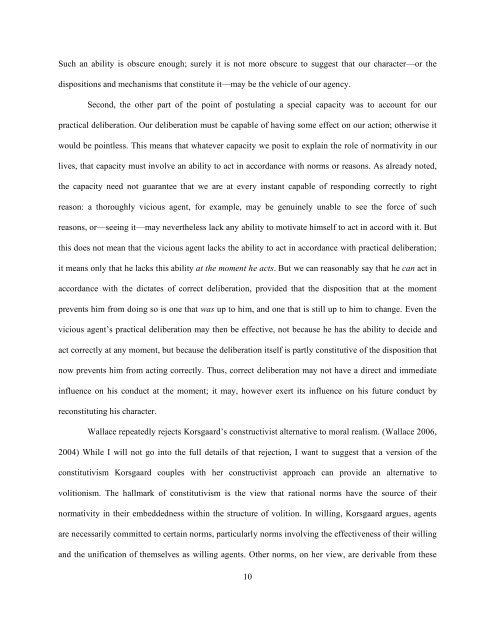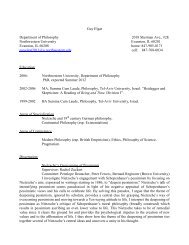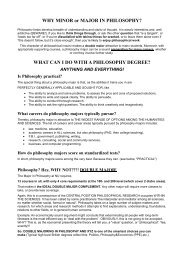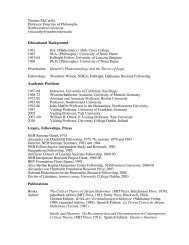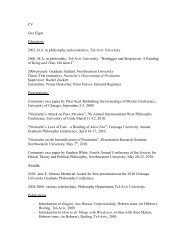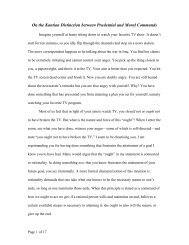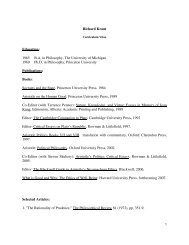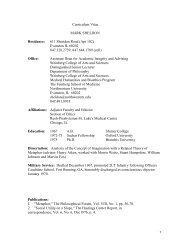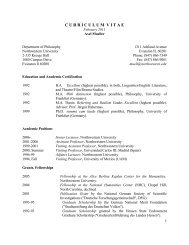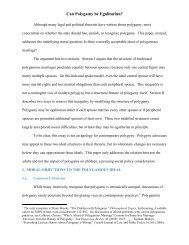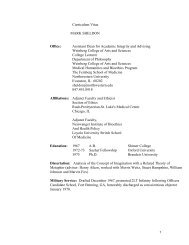Moral Agency sans Volitionism - Northwestern University
Moral Agency sans Volitionism - Northwestern University
Moral Agency sans Volitionism - Northwestern University
Create successful ePaper yourself
Turn your PDF publications into a flip-book with our unique Google optimized e-Paper software.
Such an ability is obscure enough; surely it is not more obscure to suggest that our character—or the<br />
dispositions and mechanisms that constitute it—may be the vehicle of our agency.<br />
Second, the other part of the point of postulating a special capacity was to account for our<br />
practical deliberation. Our deliberation must be capable of having some effect on our action; otherwise it<br />
would be pointless. This means that whatever capacity we posit to explain the role of normativity in our<br />
lives, that capacity must involve an ability to act in accordance with norms or reasons. As already noted,<br />
the capacity need not guarantee that we are at every instant capable of responding correctly to right<br />
reason: a thoroughly vicious agent, for example, may be genuinely unable to see the force of such<br />
reasons, or—seeing it—may nevertheless lack any ability to motivate himself to act in accord with it. But<br />
this does not mean that the vicious agent lacks the ability to act in accordance with practical deliberation;<br />
it means only that he lacks this ability at the moment he acts. But we can reasonably say that he can act in<br />
accordance with the dictates of correct deliberation, provided that the disposition that at the moment<br />
prevents him from doing so is one that was up to him, and one that is still up to him to change. Even the<br />
vicious agent’s practical deliberation may then be effective, not because he has the ability to decide and<br />
act correctly at any moment, but because the deliberation itself is partly constitutive of the disposition that<br />
now prevents him from acting correctly. Thus, correct deliberation may not have a direct and immediate<br />
influence on his conduct at the moment; it may, however exert its influence on his future conduct by<br />
reconstituting his character.<br />
Wallace repeatedly rejects Korsgaard’s constructivist alternative to moral realism. (Wallace 2006,<br />
2004) While I will not go into the full details of that rejection, I want to suggest that a version of the<br />
constitutivism Korsgaard couples with her constructivist approach can provide an alternative to<br />
volitionism. The hallmark of constitutivism is the view that rational norms have the source of their<br />
normativity in their embeddedness within the structure of volition. In willing, Korsgaard argues, agents<br />
are necessarily committed to certain norms, particularly norms involving the effectiveness of their willing<br />
and the unification of themselves as willing agents. Other norms, on her view, are derivable from these<br />
10


